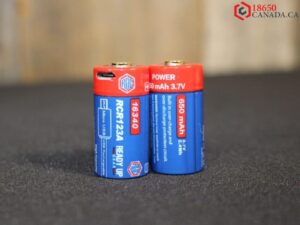The world of technology is constantly evolving, and one of the most significant advancements in recent years has been the widespread adoption of lithium-ion batteries. These compact and efficient powerhouses have revolutionized various industries, enabling the development of innovative products and solutions. In this article, we will explore the applications, advantages, and environmental impact of lithium-ion batteries.
In today’s fast-paced world, where mobility and efficiency are crucial, lithium-ion batteries have become the go-to power source for numerous applications. From electric vehicles to portable electronics and renewable energy storage, these batteries play a vital role in powering our modern lifestyle.
1. Definition of Lithium-Ion Batteries
Lithium-ion batteries are rechargeable energy storage devices that utilize lithium ions to transfer charge between the positive and negative electrodes. They are composed of multiple cells, each containing a cathode, an anode, and an electrolyte. The movement of lithium ions between these electrodes during the charging and discharging processes allows for the flow of electrical current.
2. Working Principle
The working principle of lithium-ion batteries involves a series of chemical reactions. When the battery undergoes the charging process, lithium ions are liberated from the cathode and traverse the electrolyte to reach the anode. During discharge, these lithium ions migrate back to the cathode, generating an electrical current that can be harnessed to power various devices.
3. Applications of Lithium-Ion Batteries

3.1 Electric Vehicles
One of the most prominent applications of lithium-ion batteries is in the electric vehicle (EV) industry. These batteries offer high energy density, allowing for longer driving ranges and improved performance. EVs powered by lithium-ion batteries have gained popularity due to their eco-friendliness and reduced dependence on fossil fuels.
3.2 Portable Electronics
From smartphones and laptops to tablets and wearable devices, lithium-ion batteries have become the backbone of portable electronics. Their compact size, lightweight, and high energy density make them ideal for powering these devices, enabling us to stay connected and productive on the go.
3.3 Renewable Energy Storage
Lithium-ion batteries are also instrumental in the storage of renewable energy. As we transition towards a more sustainable future, capturing and storing energy from renewable sources like solar and wind becomes essential. These batteries facilitate efficient energy storage and release when the demand is high, ensuring a stable and reliable power supply.
3.4 Medical Devices
In the healthcare industry, lithium-ion batteries play a crucial role in powering life-saving medical devices. From implantable devices such as pacemakers and defibrillators to portable medical equipment like insulin pumps and prosthetics, these batteries provide a reliable and long-lasting power source.
3.5 Aerospace and DefenseThe aerospace and defense sectors rely on lithium-ion batteries for a multitude of applications. They power everything from unmanned aerial vehicles (UAVs) and satellites to military equipment and space exploration missions. The lightweight and high energy density of lithium-ion batteries makes them indispensable in these demanding environments.
4. Advantages of Lithium-Ion Batteries
Lithium-ion batteries offer several advantages over traditional battery technologies, making them highly desirable for a wide range of applications.
4.1 Energy Density
A significant benefit of lithium-ion batteries lies in their remarkable capacity for storing a substantial amount of energy, thanks to their high energy density. They can store a significant amount of energy in a compact size, allowing for more power in smaller devices and longer operating times.
4.2 Longer Lifespan
Compared to other rechargeable batteries, lithium-ion batteries have a longer lifespan. They can withstand hundreds of charge-discharge cycles without significant degradation, making them a cost-effective choice in the long run.
4.3 Quick Charging
Lithium-ion batteries have the advantage of fast charging capabilities. With the appropriate charging infrastructure, these batteries can be recharged quickly, minimizing downtime and increasing convenience for users.
4.4 Environmental Impact
While lithium-ion batteries offer numerous benefits, it is essential to consider their environmental impact. Proper recycling and disposal methods are crucial to minimizing the potential harm caused by the extraction of raw materials and the presence of hazardous components in these batteries.
5. Wrap-up
Lithium-ion batteries have transformed the way we power our devices and vehicles, enabling advancements in various industries. Their versatility, high energy density, and longer lifespan make them an ideal choice for electric vehicles, portable electronics, renewable energy storage, medical devices, and aerospace applications. However, it is important to address the environmental impact associated with these batteries and promote responsible manufacturing, usage, and recycling practices.
FAQs
Are Lithium-Ion Batteries Safe To Use?
Lithium-ion batteries are generally safe when used correctly and manufactured to high standards. However, it is essential to follow proper handling, charging, and storage procedures to minimize any potential risks.
Can Lithium-Ion Batteries Be Recycled?
Yes, lithium-ion batteries can be recycled. Recycling helps recover valuable materials and reduces the environmental impact of disposing of these batteries. Many recycling centers and programs are available for proper disposal and recycling of lithium-ion batteries.
Do Lithium-Ion Batteries Have a Memory Effect?
Unlike some older battery technologies, lithium-ion batteries do not suffer from memory effects. They can be recharged at any time without needing to be fully discharged first.
What is the Lifespan of a Lithium-Ion Battery?
The longevity of a lithium-ion battery is influenced by a multitude of factors, including patterns of usage, charging behaviors, and the surrounding environmental conditions. On average, these batteries can last between 2 to 10 years or even longer, depending on the specific application and maintenance.
Can Lithium-Ion Batteries Catch Fire?
While rare, lithium-ion batteries have the potential to catch fire or explode if not handled properly or if they are damaged. Implementing safety measures, using reliable charging equipment, and avoiding extreme temperatures can help mitigate these risks.

